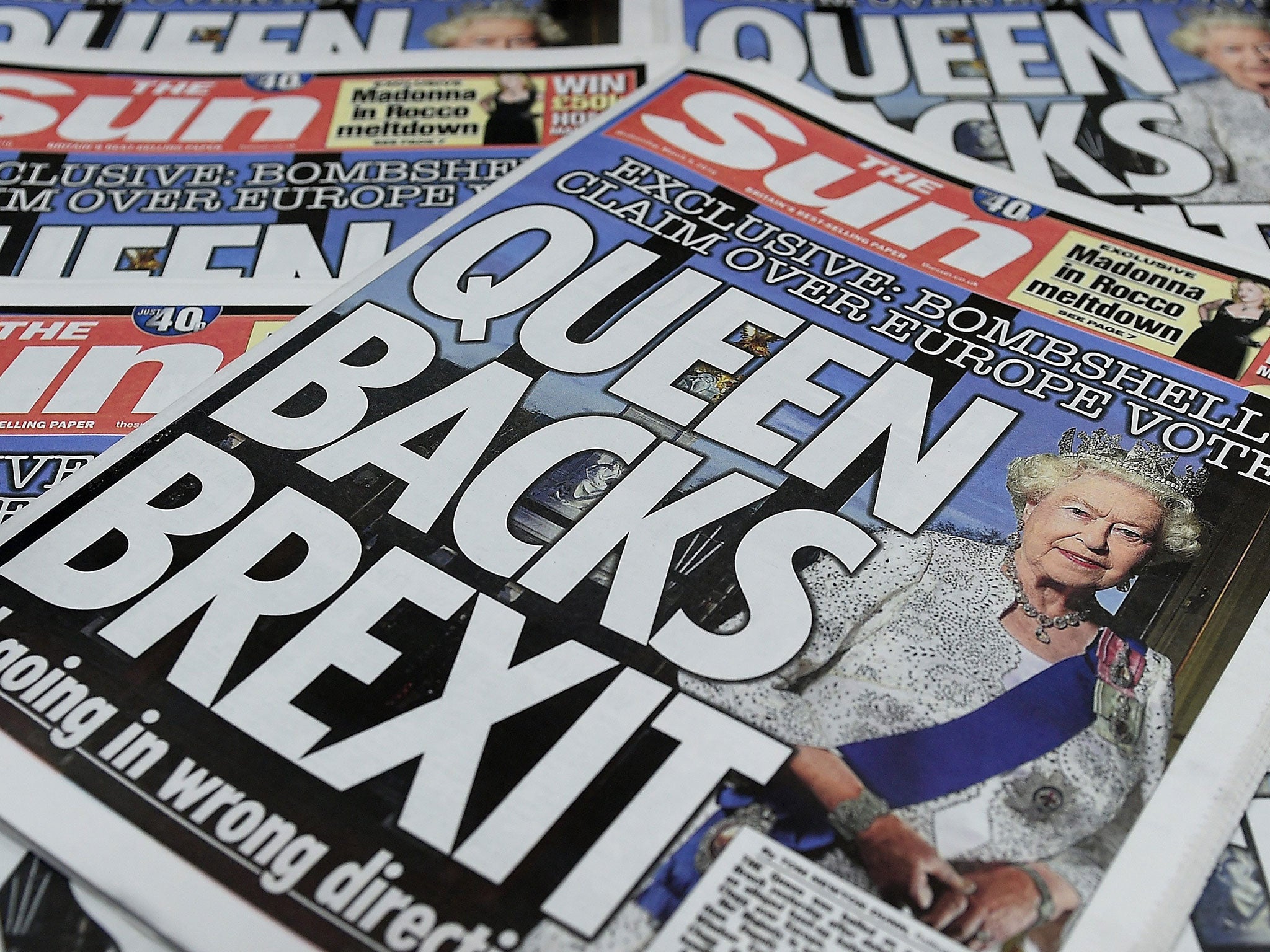The Only Way is Ethics: In the age of self-regulation, is there justification for another new media watchdog?


Last week’s complaint by the Palace over The Sun’s “Queen backs Brexit” story will probably have been received by the Independent Press Standards Organisation with a degree of trepidation. It is precisely the kind of case which may end up in a ruling that satisfies nobody. After all, the Palace is unlikely to confirm whether the Queen made the comment attributed to her. It will rely, instead, on the more specific argument that The Sun’s headline wasn’t justified by its story.
Recent changes to the Editors’ Code of Practice mean that headlines are under more scrutiny than ever, but they still cannot be examined in isolation. The Sun will presumably argue that the headline is its legitimate interpretation of the information they had received. Ipso has shown itself to be pretty robust since it came into being 18 months ago; this case provides a further test.
Meanwhile, the Press Recognition Panel last week closed its consultation over an application by the would-be alternative press regulator, Impress. The PRP was set up by Royal Charter in the wake of the Leveson Inquiry to grant formal recognition to any regulator which fulfilled various Leveson-inspired criteria. Ipso, established by the bulk of the traditional newspaper industry, will not seek recognition. Impress is the only body which has applied; and probably the only one likely to. The PRP is widely expected to give Impress a seal of approval, despite the fact that it isn’t operational and has only a dozen, small-scale member publications – including the Port Talbot Magnet and The Ferret.
Oddly, Lord Justice Leveson’s primary conclusion in 2012, following his investigation into press malpractices, was that a tougher form of self-regulation was required – albeit one backed by legislation, which to some was contradictory. Yet what exactly does self-regulation mean? It isn’t something the PRP appears set to consider when examining applications from wannabe watchdogs. And Impress isn’t a self-regulator: indeed it is largely funded by Max Mosley, a man who has likened the tabloid press to a “bunch of feral muggers”.
Some 12 years ago, when I worked at the Press Complaints Commission – the forerunner of Ipso – a colleague and I were interviewing applicants for a new case officer post. At the end of one interview we asked the candidate if she had any questions. She looked across at us, a pair of 25-year-olds, and said: “Yes, one thing. Did you two guys set up the PCC?”
This seemed funny by its inherent notion that a couple of random punters could simply set up a press regulator, pick up some keen members and start to take complaints from the public. Now, thanks to Leveson, a Royal Charter and the PRP, it’s eminently possible – as long as the running costs can be found from somewhere. And really, isn’t that a bit of a rum do?
Once more with feeling
Some readers were offended by last Tuesday’s daily cartoon, which depicted Angela Merkel – as embodiment of the EU – kicking the drowned refugee, Alan Kurdi, back into the sea with a note attached: “Return to sender”. Some thought the cartoon was an endorsement of EU policy, others that it was simply too “emotive”.
In fact, it was quite the opposite of an endorsement. As for using emotive material, guilty as charged – and thank goodness we can.
The Independent, along with the Evening Standard, Guardian and the Financial Times, remains currently outside the system of self-regulation overseen by Ipso.
Join our commenting forum
Join thought-provoking conversations, follow other Independent readers and see their replies
Comments
Bookmark popover
Removed from bookmarks